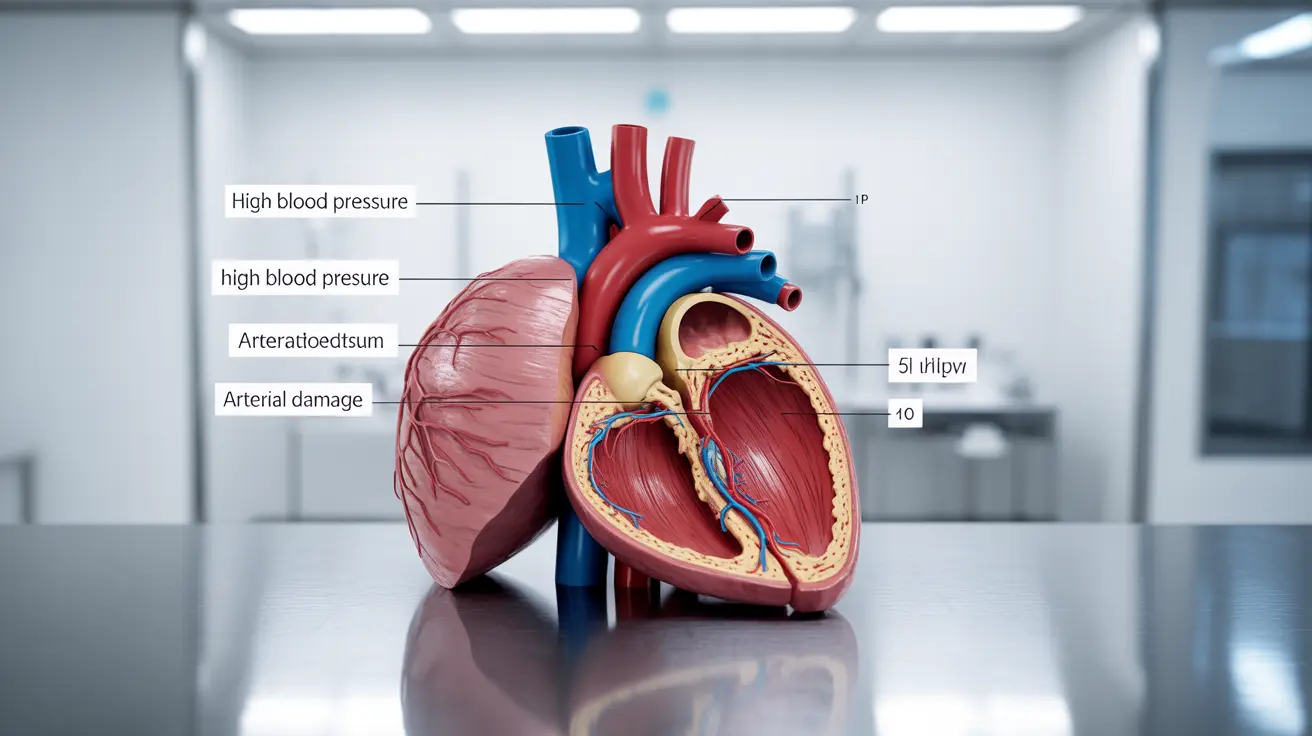Uncontrolled hypertension, a dangerous form of high blood pressure that remains elevated despite treatment attempts, affects millions of Americans and poses significant health risks. When blood pressure consistently stays above target levels, even with prescribed medications or lifestyle changes, it's considered uncontrolled and requires immediate medical attention.
Understanding this condition is crucial for both prevention and management, as uncontrolled hypertension can lead to severe complications if left unchecked. This comprehensive guide explores the causes, symptoms, diagnosis, and treatment options available for those affected by this serious health condition.
Understanding the Causes and Risk Factors
Several factors can contribute to uncontrolled hypertension, making it essential to identify and address these underlying causes:
- Medication non-compliance
- Incorrect medication dosage
- Secondary health conditions
- Poor lifestyle choices
- Genetic factors
- Age and family history
- Resistant hypertension
- Stress and anxiety
Recognizing Warning Signs and Symptoms
While hypertension is often called the "silent killer" because it frequently presents without obvious symptoms, uncontrolled hypertension may manifest through various warning signs:
Common Symptoms
- Severe headaches
- Vision problems
- Chest pain
- Shortness of breath
- Nosebleeds
- Dizziness
- Irregular heartbeat
It's important to note that these symptoms typically appear when blood pressure has reached dangerously high levels, making regular monitoring crucial for early detection and management.
Diagnostic Approaches and Monitoring
Healthcare providers use several methods to diagnose and monitor uncontrolled hypertension:
Initial Assessment
- Regular blood pressure readings
- Medical history review
- Physical examination
- Laboratory tests
Ongoing Monitoring
Continuous monitoring is essential for managing uncontrolled hypertension effectively. This may include:
- Home blood pressure monitoring
- Regular doctor visits
- Ambulatory blood pressure monitoring
- Regular cardiovascular health assessments
Treatment Strategies and Management
Managing uncontrolled hypertension often requires a multi-faceted approach:
Medication Management
- Adjustment of current medications
- Addition of new medications
- Combination therapy
- Regular medication review
Lifestyle Modifications
Essential lifestyle changes can significantly impact blood pressure control:
- Reducing sodium intake
- Regular physical activity
- Weight management
- Stress reduction techniques
- Limiting alcohol consumption
- Smoking cessation
Preventing Complications
Uncontrolled hypertension can lead to serious health complications if not properly managed:
- Heart disease and heart attacks
- Stroke
- Kidney damage
- Vision problems
- Cognitive decline
- Peripheral artery disease
Frequently Asked Questions
What are the common causes and risk factors of uncontrolled hypertension? Common causes include medication non-compliance, incorrect dosage, underlying health conditions, poor lifestyle choices, genetic factors, and age. Risk factors can include obesity, high sodium intake, excessive alcohol consumption, and lack of physical activity.
What symptoms might indicate that someone has uncontrolled high blood pressure? Key symptoms can include severe headaches, vision problems, chest pain, shortness of breath, nosebleeds, dizziness, and irregular heartbeat. However, some people may not experience any symptoms until their blood pressure reaches dangerous levels.
How is uncontrolled hypertension diagnosed and monitored by healthcare professionals? Healthcare providers diagnose uncontrolled hypertension through regular blood pressure readings, medical history review, physical examinations, and laboratory tests. Ongoing monitoring includes home blood pressure checks and regular medical appointments.
What treatment options and lifestyle changes can help manage uncontrolled hypertension? Treatment typically involves a combination of medication adjustment, lifestyle modifications (including diet changes and exercise), stress management, and regular monitoring. Some patients may require multiple medications to achieve proper blood pressure control.
What serious health complications can result from leaving hypertension uncontrolled? Uncontrolled hypertension can lead to serious complications including heart disease, stroke, kidney damage, vision problems, cognitive decline, and peripheral artery disease. Regular monitoring and proper management are essential to prevent these complications.




